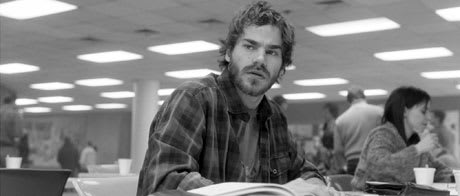On December 6, 1989, a deranged young man walked into the École Polytechnique in Montreal carrying a semi-automatic rifle and a hunting knife. Roaming from classroom to classroom, he targeted women, claiming to be "fighting feminism." Less than 20 minutes later, he had shot 28 people, killing 14 women, before turning the rifle on himself. This event shocked Canadians and its horror continues to haunt this country. That makes Denis Villeneuve's film all the riskier, and impressive. Polytechniqueis one of the strongest films of 2009 so far; it captures the brutality of the murders but doesn't sensationalize them nor elevate its killer, unlike recent films about John Lennon's assassin. Wisely, Polytechniqueis filmed entirely in black-and-white, which creates a rational distance to the horror and avoids dwelling on the bloody gore that a colour film would expose. Secondly, Polytechnique told from three different points of view, in Rashomonstyle. First, we see the killer in his room, stewing in hatred, planting the seeds of slaughter. The killing spree is then told from the point-of-view of both a female survivor and a male classmate who tries to save some victims. We see them during the executions and many months later struggling to cope with the trauma. These moments ring with sober authenticity even though the characters are composites and not based on real people. If there is a weakness in this exceptional film it's that we don't know what sparked the killer's (who's never named) rampage. That's a calculated risk taken by Villeneuve that doesn't derail Polytechnique raises the question afterwards. The first DVD of this two-disc set includes both the French and English language versions of the film — the English is just as convincing as the French. Disc two's bonus features, unfortunately, are only in their original French, including a detailed TV documentary that looks back on the massacre by interviewing survivors. Anglophones will feel excluded, and that's a pity since the film begs for historical background.
(Alliance)Polytechnique
Denis Villeneuve

BY Allan TongPublished Aug 27, 2009



